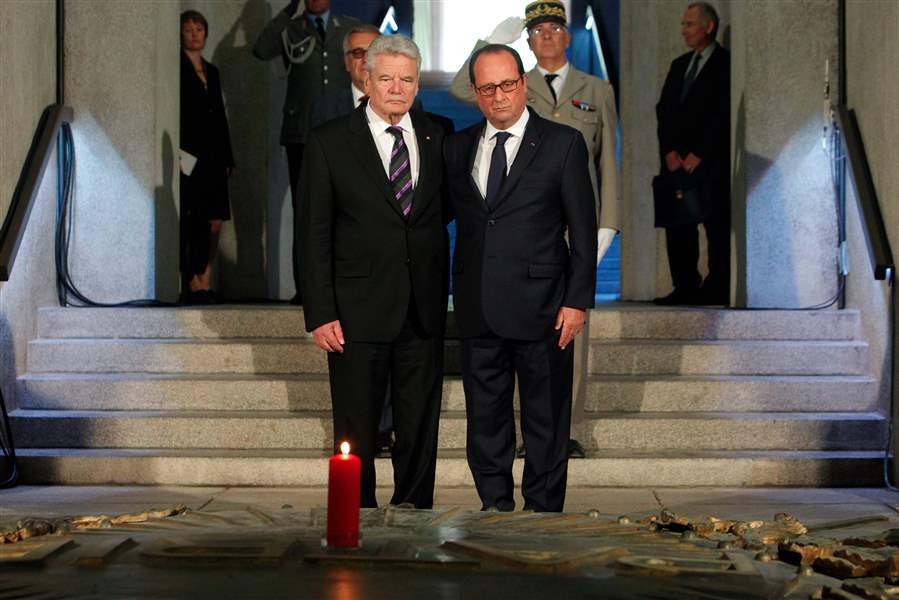
French president marks centenary of the start of World War I with appeal for peace in Gaza
8/3/2014
France's President Francois Hollande, right, stands with German President Joachim Gauck, left, as they pay respect in the crypt of the the National Monument of Hartmannswillerkop, in Wattwiller today in eastern France.
ASSOCIATED PRESS

France's President Francois Hollande, right, stands with German President Joachim Gauck, left, as they pay respect in the crypt of the the National Monument of Hartmannswillerkop, in Wattwiller today in eastern France.
PARIS — French President Francois Hollande commemorated the 100th anniversary of World War I on Sunday with an appeal to players in the Gaza conflict to put animosities aside — just as France and Germany have done.
In an impassioned speech in Vieil Armand in Alsace, Hollande paid homage to those who lost their lives after Germany declared war on France on Aug. 3, 1914. But he recalled that former enemies France and Germany put aside their differences to pave the way for peace — and that others do the same.
“The history of France and Germany shows that will can always triumph over fatalism and the people who were regarded as hereditary enemies can, in a few years, reconciliate,” he said.
He called on the world to take the lasting nature of Franco-German relations as a lesson in peacemaking. He said world powers should seek to impose a cease-fire in Gaza, “to stop the suffering of the civilian population.”
German President Joachim Gauck joined the French leader for the ceremony— the first time Germany’s head of state has attended.
Soldiers bitterly contested Vieil Armand — known in German as Hartmannswillerkopf — because the summit offered a commanding view of the Rhine Valley. Armies at the time deemed its capture as strategically important and some 30,000 died in fighting.
The cemetery contains the remains of 12,000 unidentified soldiers.
Hollande also put in place a foundation stone for a museum on the site that will open in in 2017.